How Portsmouth's Noah Mapalo Centre are saving girls in Zambia from period poverty
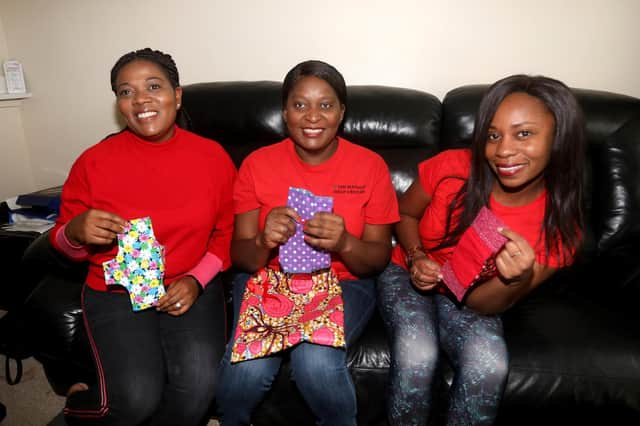

But in 2012, Priscilla, a one-woman-band, had a revolutionary idea. After moving from her home in Zambia to London in January 2001, then to Portsmouth 11 years later, she discovered one of the vulnerable communities in need called Baluba which she stumbled on while on a visit to Zambia.
While working shifts as a support worker in Portsmouth, Priscilla started putting aside some of her wages to put towards tackling poverty for families and children in her home country.
Advertisement
Hide AdAdvertisement
Hide AdBy 2013, she was hosting small fundraising events to raise funds to empower people in the community to enable them to grow their own crops - and by then her one-woman-enterprise had blossomed to something more. A few people volunteered to join the Noah Mapalo Help Centre at Eastney where Priscilla built her ambitious venture from the confines of her home.
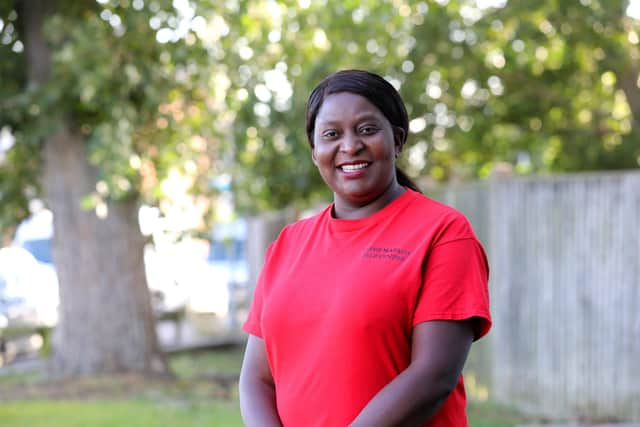

Today she leads a network of 17 members hailing from the wider Portsmouth area along with a further 23 volunteers from Zambia, this time with a special campaign the organisation launched in June this year.
Volunteer Vee Mumbire, from Waterlooville but originally from Zimbabwe, had been using her own resources to sew reusable sanitary pads from her home. Priscilla and her team of volunteers were inspired and launched their own campaign ‘Reduce Period Poverty for a Girl in Zambia’.
Together they have donated washable sanitary towels to more than 100 girls at Libala Secondary School, a neighbouring orphanage, and Vine Community School, all in the capital Lusaka.
Advertisement
Hide AdAdvertisement
Hide Ad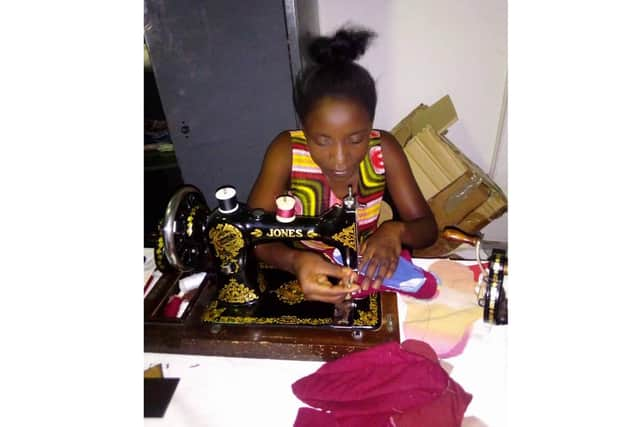

During a break in lessons, orphan and Libala pupil Precious Banda, 15, spoke to The News about what it was like to receive one of the pads donated by Priscilla and the centre.
Before Noah Mapalo came along families in this Zambian community were faced with the difficult choice of either buying their daughter a pad or putting food on the table – the latter always came first. But now this is beginning to change.
Precious says: ‘The reusable pads are very nice. They have a lot of advantages. They really help us as girls. Most of the time it’s good because you don’t have to spend money buying a pad each month which is costly.
Advertisement
Hide AdAdvertisement
Hide Ad‘Wearing these pads makes me feel safe from infections. Some girls find when you wear the disposable pads you can start getting an itch. At least when we use reusable pads you just have to wash them, and of course how you wash and take care of it is down to you.
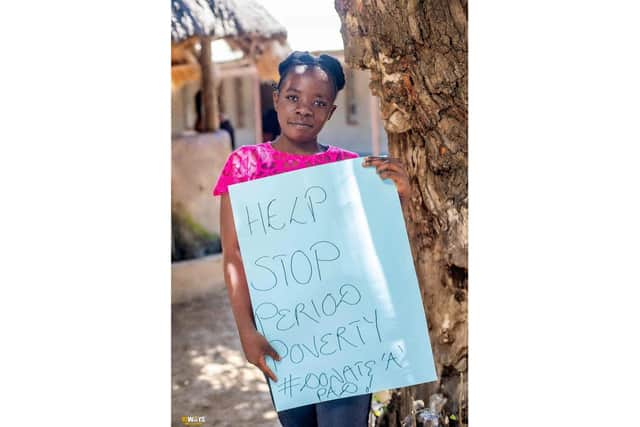

‘I really enjoy the reusable pads. Before I had the pads I used to skip school when I was on my period.
‘Even if I’m sat down at a table working I would think to myself “oh no, maybe it might show”. But after we got the reusable pads I’m comfortable and we can go to work and school as normal.
‘The girls getting the pads are about 15 or 16. Within the community there are a lot of girls who have access to the pads – more than 100.
Advertisement
Hide AdAdvertisement
Hide Ad‘But one thing that needs to change is telling the boys about periods.
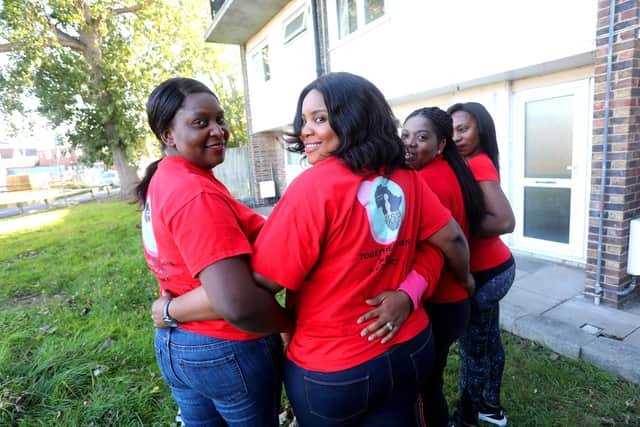

‘I think the boys should at least be taught what periods are so they know how we feel as girls.’
Priscilla too is concerned about a lack of education for boys about the female reproductive system.
She explains: ‘This is why for us when we go to the schools we don't discriminate. We invite the boys to listen to what we're saying to the girls because then they should know that it's actually normal for a girl to have periods.
Advertisement
Hide AdAdvertisement
Hide Ad‘At the moment in Zambia [due to their culture] it's not normal for a guy to see blood from a woman so we want to try and say no, it's normal, and remove that stigma.'
Since Noah Mapalo launched, Priscilla aimed to fly out to deprived communities every year to provide food hampers, clothes, and hygiene products – even bras donated after a ‘Breakfast Bra’ event she held in Portsmouth.
However, as Covid took hold Priscilla was forced to put her trip with the volunteers on stand-by.
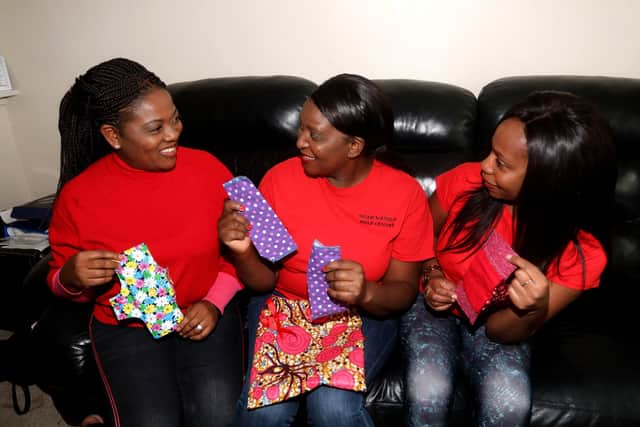

‘We sent some pads in March this year to one of the orphanages because it was needed there.
Advertisement
Hide AdAdvertisement
Hide Ad‘But we started the campaign around June after volunteers in Zambia and the UK sourced materials for the pads back in England.
‘The materials for the pads can’t be found in Zambia.
‘Because we’d run out of materials, as we hadn’t been doing a lot of events due to Covid to raise funds, sometimes running our projects in Zambia has been a bit of a challenge. So that’s why we came up with this new campaign.
‘We now have volunteers in Zambia. We’ve had a workshop since 2018 which we rent to run the project because when we started making the reusable pads.
‘One of the ladies came up with this idea to launch a full campaign. So we advertised and started running a workshop where we sew the pads together with people coming from all over Hampshire .
Advertisement
Hide AdAdvertisement
Hide Ad‘She said "why don't we do period poverty?” I never really thought about it myself but everyone thought "oh wow that sounds like a good idea".
‘When we started making the pads, we met another lady who was making them at the time who was there quietly sewing them. When she finished she said “well done” but you’re not doing it quite right.
‘So that's why we sat down and we started going round in the salons to ask for old towels, bed sheets, cotton from the tailors and that's when we started having the workshops on how to make them so the girls are protected enough.’
‘We trained some of the girls in Zambia now to start making the pads themselves. They are very very grateful.’
Advertisement
Hide AdAdvertisement
Hide AdUnfortunately, saving up for the trips, shipping and materials for sanitary pads and many more items to help impoverished communities like Boluba, Priscilla and her team need to keep the funding going and boost this through events held in Portsmouth.
In July the team played host to a virtual event to supply sanitary products to 1,000 girls in Zambia.
Next month, with dates to be confirmed, the Noah Mapalo Centre will hold a multicultural food tasting day to raise vital funding for their continued efforts supporting projects in Zambia.
Donations to support more girls in need of pads can be made through the website noahmapalo.com.
A message from the Editor, Mark Waldron
Advertisement
Hide AdAdvertisement
Hide AdWe’ve slashed the cost of digital subscriptions to our website by 50 per cent for a limited time.
You can now subscribe here for unlimited access to our online coverage, including Pompey, for less than 13p a day.
Comment Guidelines
National World encourages reader discussion on our stories. User feedback, insights and back-and-forth exchanges add a rich layer of context to reporting. Please review our Community Guidelines before commenting.
